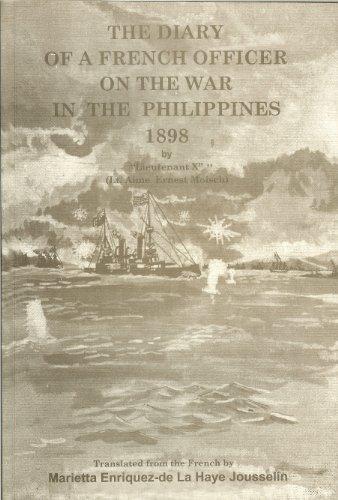Americans and Germans
A Reuters dispatch states that the English are displeased with the influx of Germans into the Philippines. Early in the game, we see Mr. Chamberlain’s policies in action. The friends of our friends are our friends, goes a saying, but I think we cannot be sure of the German position. Numerous rumors are spreading all over the Far East about the Irene. The following is an account which appears in an English newspaper.
The Germans’ movements in the Manila Bay are causing much anxiety. They have not scrupulously observed the rules of moral courtesy. They have aggravated everyone by constantly dispatching their ships in all directions in the bay, a practice which is completely against all regulations. But the most extraordinary event was the taking of the Rio Grande at the entrance of Subic Bay. The insurgents had succeeded in overrunning the whole countryside, village after village. The Spaniards were finally obliged to take refuge on the island. The rebels, having captured the steamer Filipinas, were preparing to launch an attack on the island. The German cruiser, Irene, intervened, intending to shield the Spaniards if the insurgents opened fire. When the Filipinas returned to Manila, the incident was reported to Aguinaldo, who immediately conveyed the information to Admiral Dewey. The following day, at dawn, Captain Coghlan received orders to head for Subic with the Raleigh and the Concorde, take possession of the island, and to hold the Spaniards as prisoners. As soon as the Americans appeared, the Irene weighed anchor and headed for Manila.
Meanwhile, the Spaniards indicated that they were prepared to surrender if the Americans took them into their charge. Captain Coghlan asked the Concorde to obtain new instructions from Dewey, whose response was as follows: “Execute orders received.” The Spaniards were informed that this was irreversible and that they were expected to surrender. Initially, they refused to comply, but realized they had no other alternative after a few shells were fired at them. Then they raised the white flag. Taken prisoner were 400 armed soldiers, 100 sick, and 100 women, all of whom were handed over to the insurgents.
Aguinaldo later confirmed that both the Spaniards and the Germans had made overtures towards him, but naturally gave no details.In a letter to Consul General Wildmann in Hongkong, he was alluding to the Spanish fleet en route to the Philippines when he said:
“This news of a reinforcement does not frighten me at all. I doubt that these ships will be able to enter Manila Bay. Admiral Dewey is not sleeping!”
It appears, in fact, that the admiral decided to undertake the defense of Corregidor with cannons and torpedoes. The idea seems feasible, bur do they have the necessary weapons to carry it through?
At this point, the English insist on showing their strength beside the Americans, their only sincere friends. According to the English, the American soldiers and marines are indignant over German bravado. “The maneuvers could be doomed to fail because of these Germans.”
Everyone’s attention is focused on Dewey’s diplomatic movements because he, more than anyone else, is constantly informed of the activities taking place in the bay. He uses great tact in his dealings with the German admiral. It is said that Admiral von Diederichs informed Dewey that he never had any intention of offending the Americans and that the increasing movements of his ships were merely a demonstration of their military strength. Admiral Dewey is understood to have replied that it would have been better if he had acted differently.
